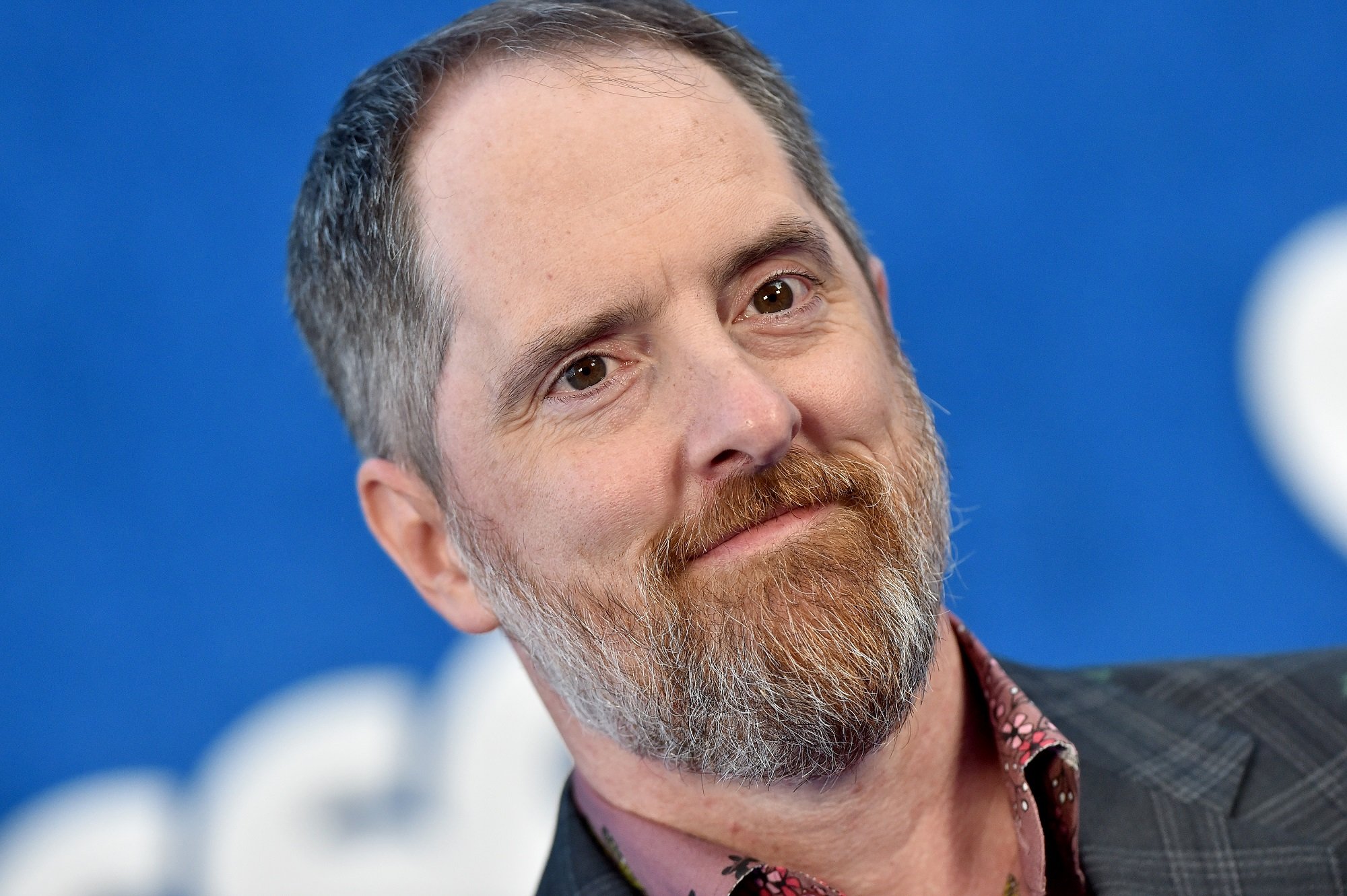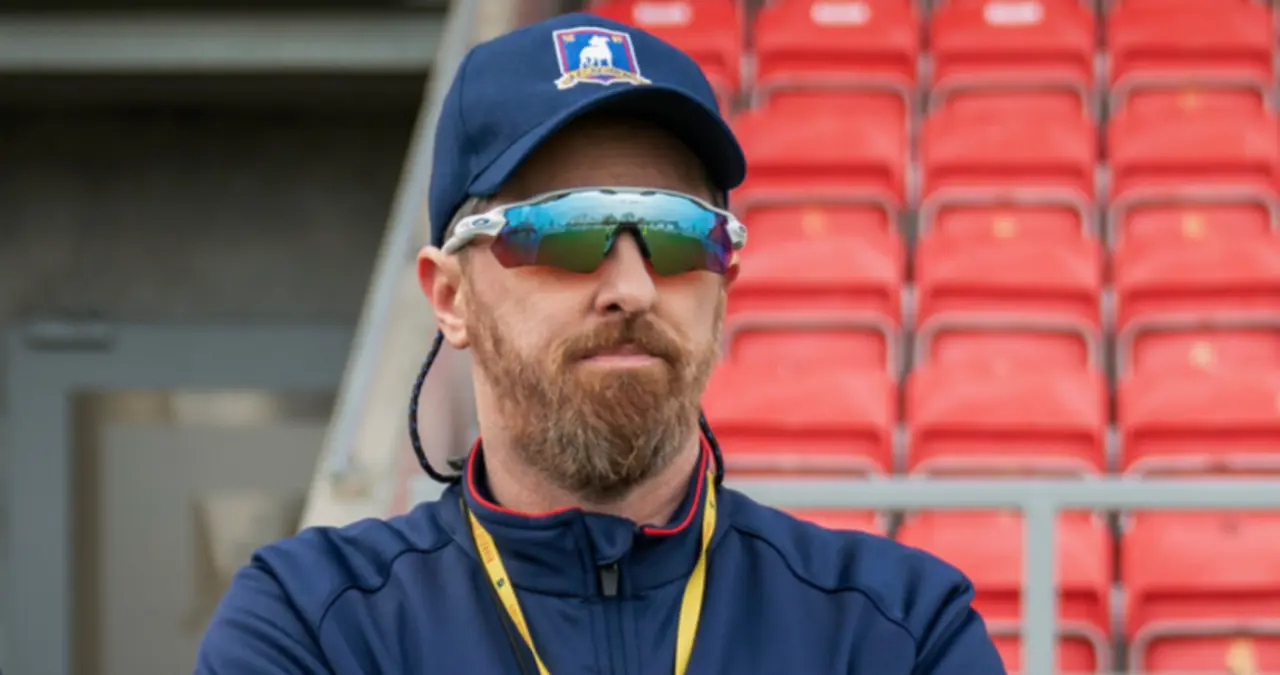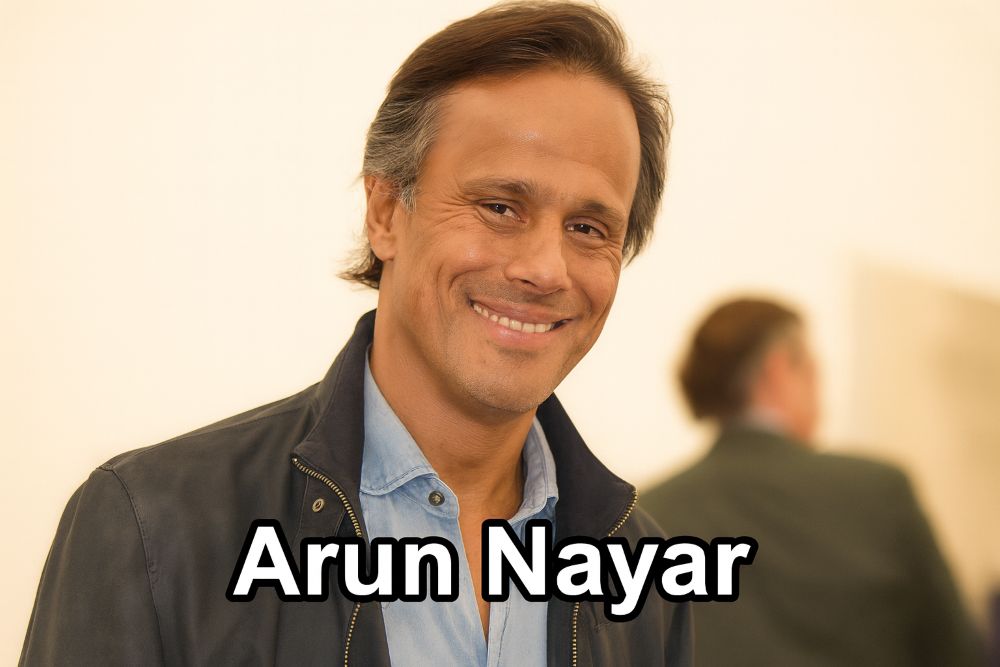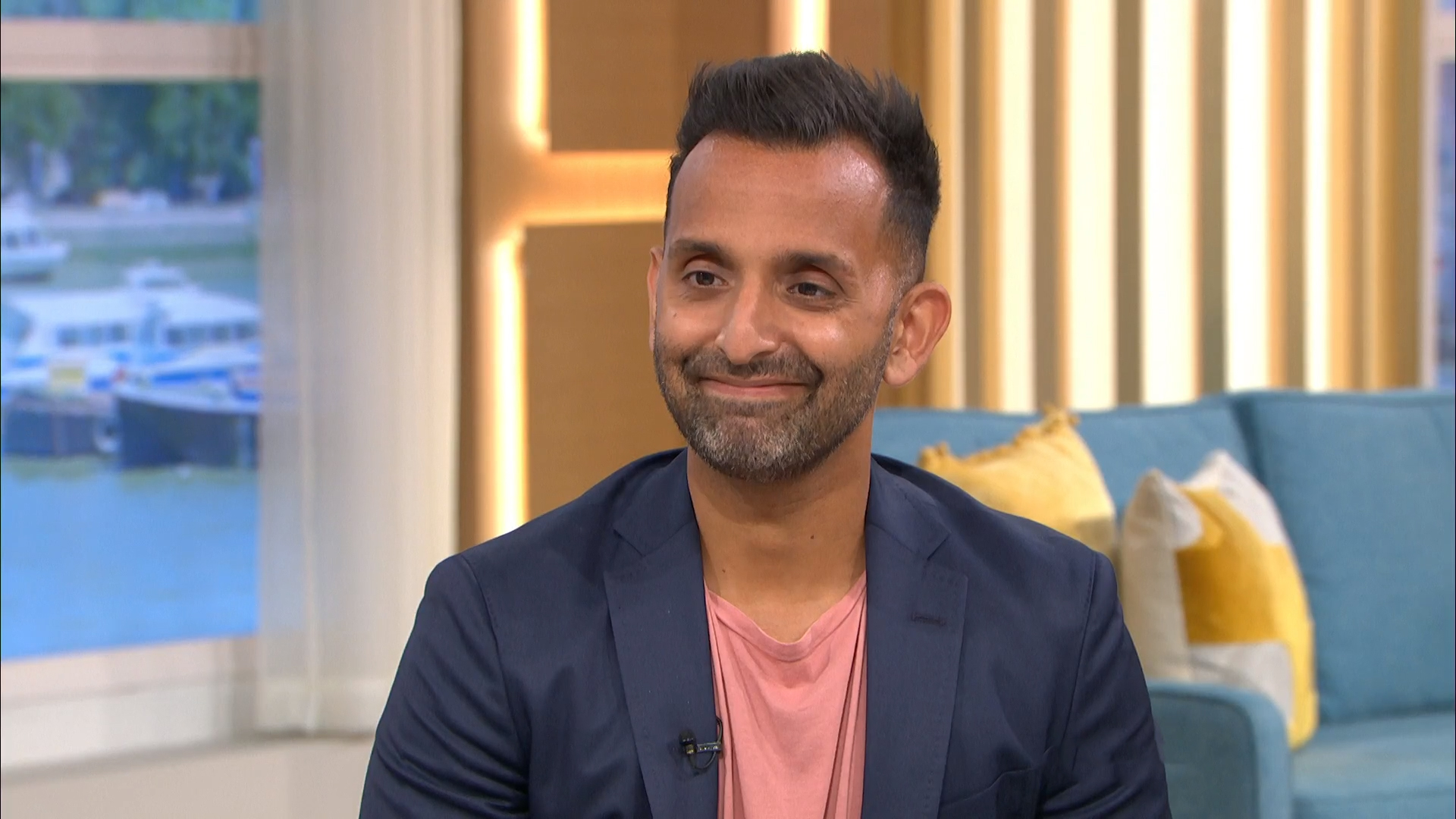Introduction: The Quiet Powerhouse of Entertainment
In an industry that often celebrates flash over substance, Brendan Hunt stands as a refreshing anomaly – a multi-talented creative force whose quiet brilliance has steadily shaped some of the most beloved comedy of our time. While he may not seek the spotlight with the fervor of some contemporaries, his fingerprints are all over television’s most heartwarming and hilarious moments of the past decade. From his scene-stealing performance as Coach Beard in Ted Lasso to his influential work behind the scenes, Hunt represents the best kind of Hollywood success story: one built on genuine talent, versatility, and an unshakable commitment to craft.
What makes Hunt particularly fascinating is how he embodies the spirit of old-school comedy while thriving in today’s entertainment landscape. He’s equally comfortable crafting subtle character moments as he is delivering broad physical comedy, able to shift from writer’s room to soundstage with effortless grace. His journey from Chicago’s improv theaters to Emmy-winning television offers a masterclass in artistic evolution, proving that in comedy-as in life – authenticity and skill ultimately win out. This comprehensive exploration of Hunt’s career will examine how he became one of entertainment’s most valuable players, the creative philosophies that guide his work, and why his influence extends far beyond any single role.
Chicago Roots: Forging a Comedic Identity
The story of Brendan Hunt’s artistic development is inextricably linked to Chicago’s legendary comedy ecosystem. Born in 1971, Hunt came of age during what many consider a golden era for Chicago improv, when institutions like The Second City and iO Theater (then known as ImprovOlympic) were producing generation-defining talent. Unlike many performers who discover improv in college, Hunt was exposed to this world early, developing an appreciation for its unique alchemy of spontaneity and structure that would inform his entire career.
After studying theater at Southern Illinois University, Hunt immersed himself completely in Chicago’s comedy scene. His training wasn’t just about learning to be funny – it was a rigorous education in human behavior. At iO Theater, under the guidance of improv guru Del Close, Hunt internalized the famous “Yes, and” philosophy that would become foundational to his creative approach. What set him apart even in this competitive environment was his ability to balance razor-sharp wit with emotional authenticity, a duality that would later make his Ted Lasso character so compelling.
The Improv Crucible: Crafting a Unique Comic Voice
Hunt’s years in Chicago’s improv trenches weren’t merely a stepping stone – they were where his artistic identity truly took shape. Performing multiple nights a week with various troupes, he developed a reputation as what veteran improvisers call a “supportive killer” – someone who could elevate every scene while still delivering knockout laughs. His work with the acclaimed Improvised Shakespeare Company deserves particular attention, as it showcased his rare ability to marry intellectual dexterity with pure entertainment value.
The lessons from this period became the bedrock of Hunt’s creative philosophy. In numerous interviews, he’s emphasized how improv taught him the value of listening – truly listening – performance. This manifests in his acting through those subtle, reactive moments that make his characters feel lived-in and real. It’s evident in his writing through the natural rhythm of his dialogue. Perhaps most importantly, improv instilled in Hunt a collaborative spirit that’s made him a sought-after creative partner, able to enhance projects without ego or agenda.
Breaking Into Television: The Long Game Pays Off
Hunt’s transition to television followed a path familiar many improv veterans, starting with Brendan Hunt writing gigs while gradually earning on-camera opportunities. His work on MADtv during its later seasons demonstrated his versatility, contributing to everything from political satire to absurd character pieces. What’s often overlooked from this period is how Hunt’s writing stood out for its emotional intelligence – even in broad sketches, there was always a kernel of recognizable human truth.
The turning point came through his collaboration with Jason Sudeikis, first on those now-legendary NBC Sports promos that would evolve into Ted Lasso. Hunt’s role in developing these early segments went beyond typical writing duties – he helped establish the tonal blueprint that would make the eventual series so distinctive. The genius of those initial sketches lay in their subversion of expectations, presenting what seemed like a fish-out-of-water premise before revealing surprising depth and warmth. This delicate balance would become Hunt’s signature strength.
Ted Lasso: A Career-Defining Triumph

As Ted Lasso evolved from cult favorite to cultural phenomenon, Hunt’s contributions as both performer and writer proved indispensable. His portrayal of Coach Beard represents a masterclass in restrained comedy – a character who communicates volumes through subtle glances and perfectly timed monosyllabic responses. What could have been a one-note sidekick role became, in Hunt’s hands, one of television’s most intriguing and unexpectedly moving characters.
Behind the scenes, Hunt’s writing helped maintain the show’s delicate emotional ecosystem. Episodes he penned, like the standout “Carol of the Bells” in season two, showcase his ability to weave multiple character arcs into a cohesive, emotionally satisfying whole. His deep understanding of comedic rhythm allows for scenes pivoting from laugh-out-loud funny to genuinely poignant without feeling forced. This tonal dexterity – so rare in television comedy – is perhaps Hunt’s greatest gift as a storyteller.
Beyond Lasso: Exploring Hunt’s Creative Range
While Ted Lasso remains his most visible achievement, Hunt’s career encompasses various projects that reveal different facets of his talent. His voice work in Toy Story 4 as Officer Me demonstrated his ability to create memorable characters with limited screen time. His appearances in shows like I’m Sorry and Curb Your Enthusiasm showcase his versatility as a performer. Even his early web series, The Earliest Show, hints at the creative restlessness that drives him to keep exploring new formats.
What unites these diverse projects is Hunt’s commitment to authenticity. Whether voicing an animated toy or playing a fictionalized version of himself, there’s always a core of emotional truth beneath the comedy. This integrity extends to his writing process – colleagues frequently praise his willingness to discard easy jokes in service of character development and story. In an era where comedy often prioritizes instant gratification over lasting impact, Hunt’s work stands out for its depth and durability.
The Creative Process: Inside Hunt’s Approach
Delving into Hunt’s creative methodology reveals why his work resonates so deeply. His writing process combines rigorous structure with room for spontaneity – a reflection of his improv roots. He often speaks about “writing by ear,” crafting dialogue that sounds natural when spoken aloud. This attention to rhythm and flow gives his scripts their distinctive musicality, allowing jokes to land with organic precision.
As an actor, Hunt employs what might be called “active listening” – his performances are remarkable for how present he remains in every moment. Watch any Ted Lasso scene featuring Coach Beard, and you’ll notice how genuinely he reacts to other characters, creating a sense of shared reality that elevates the entire ensemble. This selfless approach to performance – always serving the scene rather than himself – has made him a favorite among directors and fellow actors alike.
Legacy and Influence: Redefining Modern Comedy

While still mid-career, Hunt’s influence on contemporary comedy is already significant. Through Ted Lasso, he’s helped popularize a new model of comedy that rejects cynicism without sacrificing sophistication. Younger writers and performers cite his work as proof that comedy can be both intellectually satisfying and emotionally nourishing – a rebuke to the outdated notion that “serious” and “funny” are mutually exclusive.
Perhaps most importantly, Hunt represents a bridge between comedy’s past and future. He carries forward the traditions of character-driven humor perfected by his Chicago predecessors while adapting them for modern sensibilities. In an industry that often prizes novelty over craft, Hunt’s success serves as a reminder that foundational skills – strong writing, authentic performance, emotional honesty – never go out of style.
Looking Ahead: The Next Chapter
With Ted Lasso concluded, the entertainment world eagerly anticipates Hunt’s next moves. Given his history, we can expect him to continue defying expectations – perhaps exploring dramatic roles, developing new series, or even stepping behind the camera as a director. Whatever form his future projects take, they’re sure to bear his distinctive creative stamp: that perfect alchemy of humor and heart that’s become his trademark.





